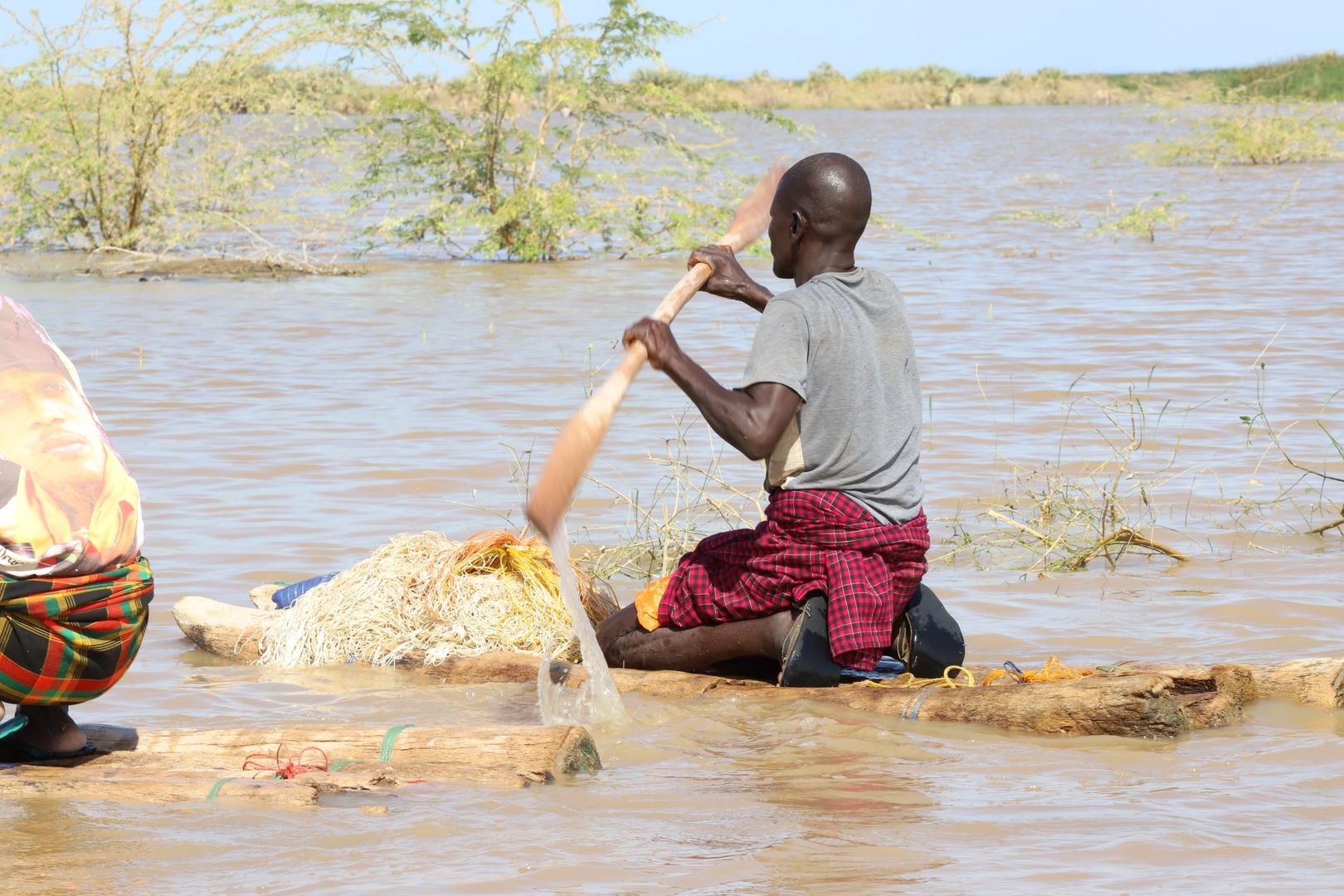About the Inuana Project
With the support from Danida, the ‘Inuana’ Project is helping parents and caregivers to actively support their children’s education in Turkana County. Together with our partner, Sustainable Approaches for Community Empowerment (SAPCONE), DanChurchAid reinforces parents and caregivers (of children onboarded in the project) source of livelihood, which is fishing, to empower them economically to be able to cater for their children education. Inuana means ‘lift each other up’ in Swahili, and this approach is enabling communities living in an area impacted by multiple climate-related challenges to do just that! The project started in January 2021 and is going through to July 2024.
Under the project, DCA and SAPCONE looks to improve access to education in Turkana County. The county is one of the arid and semi arid counties in Kenya and access to education has been hampered by challenges such as poverty and lack of infrastructure in schools. By helping parents and caregivers to actively support their children’s education in Turkana County, access to education will improve. DCA supports this by empowering 30 fisherfolk groups to maximize the economic return of fishing, in addition to supporting students with basic scholastic materials in school.
Meet the fisherfolk groups supported
Lotikadengo’o and Mwangaza fisherfolk groups in Wadach and Kerio respectively, are two of the 30 fisherfolk groups onboarded in the project. The groups has members ranging from 10 – 15, and who are parents or guardians of the students being supported in the project based on their vulnerability.

Fishing is one of the major source of livelihoods for communities living on the shores of Lake Turkana. Despite being a lucrative trade, fishing communities lack materials for fishing therefore cannot realize the full economic potential of fishing. Because of this, parents and guardians find it hard to support their children education. Under the Inuana project, DCA and SAPCONE supports them with fishing nets, floaters, hooks and helped them to purchase a fibre glass boat.
Before the project
Life was hard on them, they depended on small scale fishing and keeping and selling livestock produce for sustenance. Due to prolonged drought, their livestock died and life became unbearable. Coupled with limited fishing equipment i.e., the use of rafter boats, supporting their children education became increasingly difficult. Apart from safety concerns associated with the rafter and wooden boats, they were also not durable, could not go to deep waters and could not carry a big catch.

Paulo Akurun with a rafter boat in Lake Turkana. A rafter boat is used by small scale fishermen. The boat has many disadvantages among them susceptible to attacks from crocodiles, fragility and inability to hold huge loads of fish. Under the project, fishergroups are supported to transition to using fibre glass boats in fishing.
Inuana project solving their problems
Through the project, DCA and SAPCONE supported each group with; ten fishing nets, floaters, hooks and helped them to purchase a fibre glass boat. The cost of one fibre glass boat is 600,000 shillings (Approximately 3,900 USD) and hence it is not possible for a subsistence fisherman to purchase. However, DCA came up with a co-funding model where a group contribute 30% of the total cost and DCA contributes the other 70%.
The fibre glass boat is big in size, and we can collect our catch from all the 10 fishing nets in few trips and it is also safe as it is not prone to accidents. This boat can also go deeper into the sea where there are bigger fish, so we are no longer limited to fish close to the sea.Akaal Long’or

With support from Danida, 10 fisher folk groups were supported with 10 motorized fibre glass boats fitted with engine under the Inuana project. This will go along way in supporting their fishing far and deep in Lake Turkana, leading to increase in fish catch and disposable income, and food consumption score as well as improving school enrollment. The groups were drawn from Kerio, Kalokol, Kangatotha and Lake Zone wards of Turkana County.
The Impact of the project
The fibre glass boat is big in size. The groups can collect the catch from the ten fishing nets in few trips. The boats are also safer and not prone to crocodile attacks as compared to the rafters and wooden boats. With the new boats, they have increased economic return of fishing and this have reflected on their lives. They can make an average of 70,000 shillings (Approximately 452 USD) in 2 – 3 weeks. They can now afford to buy foodstuff and sustain their livelihoods. Once they get the money, part of it goes to boat operations kitty for maintenance, buying fuel, and salt for salting fish. The rest of the money is shared among the members.
In their own words…

We are now financially able, and our lives are better. I used the money to buy fishing nets for my two older boys to empower them to start our own family fishing venture. Every member is doing the same, buying personal fishing nets for family fishing. We hope that by the end of the project we can are able to support our children education beyond the project.Roseline Amaya
Future?
The fisherfolk groups are looking to use their savings to purchase additional fibre glass boats. Armed with these boats, they will better support their childrens’ education by netting more fish!
About the Donor
Danish International Development Agency (Danida) is the brand used by the Ministry of Foreign Affairs of Denmark when it provides humanitarian aid and development assistance to other countries, with focus on developing countries. Read more here
About SAPCONE
SAPCONE-Sustainable Approaches For Community Empowerment was founded in 2006 and registered with the Department of Social Services and Development as a Community based organization that is mandated to spearhead socio-economic self-reliance as well as transformative sustainable development agenda. Read more here

